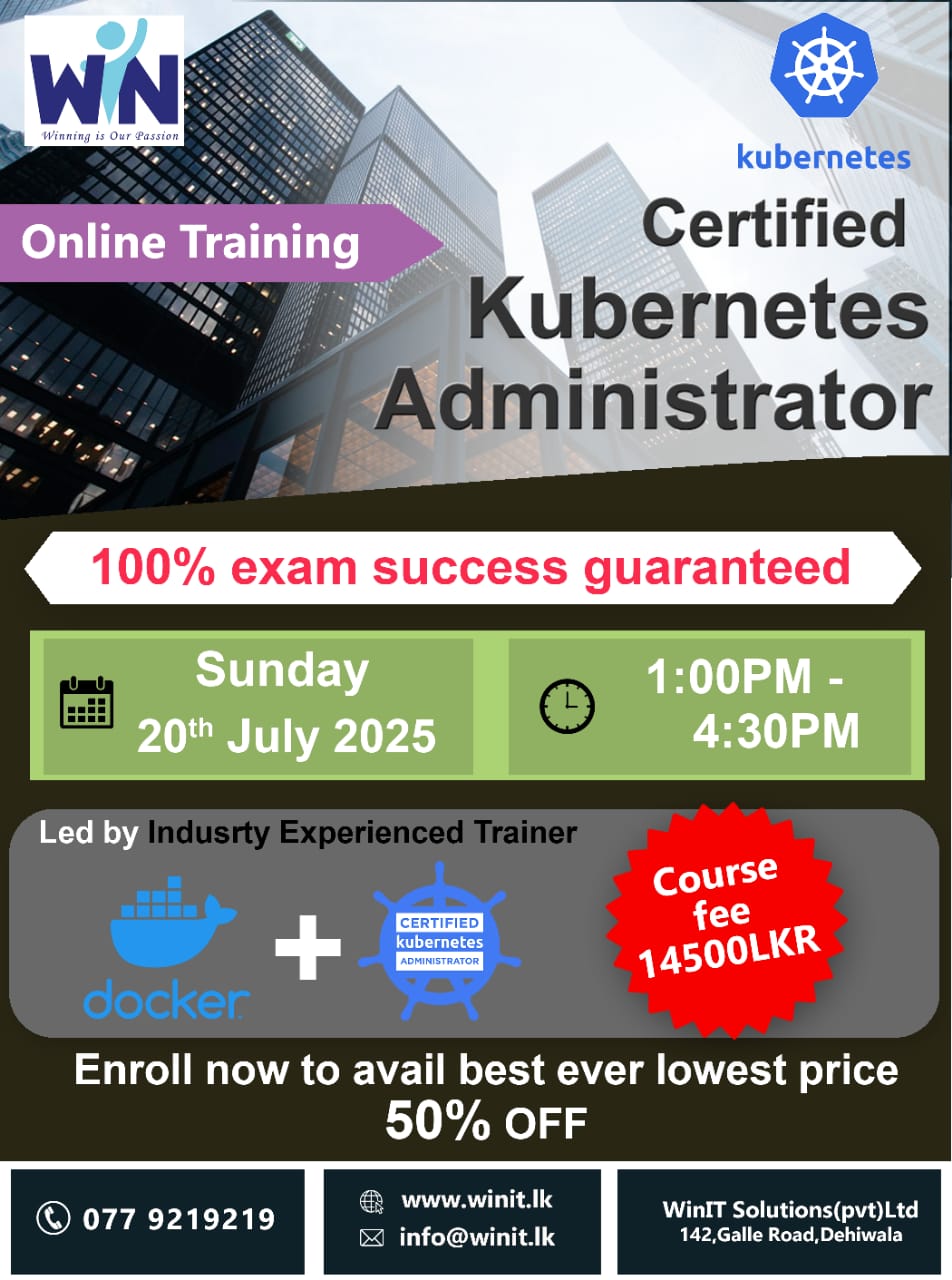Certified Kubernetes Administrator (CKA) with Docker - Online Training

As a Kubernetes training center in Srilanka, Our goal is to create individuals with sound knowledge in Kubernetes and Docker, We are already recognized as the First training center in Srilanka to provide Kubernetes training.
Course Outline
Application Lifecycle Management
- Understand deployments and how to perform rolling update and rollbacks
- Know various ways to configure applications
- Know how to scale applications
- Understand the primitives necessary to create a self-healing application
Installation, Configuration & Validation
- Design a Kubernetes Cluster
- Install Kubernetes Masters and Nodes
- Configure secure cluster communications
- Configure a highly-available Kubernetes cluster
- Know where to get the Kubernetes release binaries
- Provision underlying infrastructure to deploy a Kubernetes cluster
- Choose a network solution
- Choose your Kubernetes infrastructure configuration
- Run end-to-end tests on your cluster
- Analyze end-to-end test results
- Run Node end-to-end Tests
- Install and use kubeadm to install, configure, and manage Kubernetes clusters
Core Concepts
- Understand the Kubernetes API primitives
- Understand the Kubernetes cluster architecture
- Understand Services and other network primitives
Networking
- Understand the networking configuration on the cluster nodes
- Understand Pod networking concepts
- Understand Service Networking
- Deploy and configure network load balancer
- Know how to use Ingress rules
- Know how to configure and use the cluster DNS
- Understand CNI
Scheduling
- Use label selectors to schedule Pods
- Understand the role of DaemonSets
- Understand how resource limits can affect Pod scheduling
- Understand how to run multiple schedulers and how to configure Pods to use them
- Manually schedule a pod without a scheduler
- Display scheduler events
Security
- Know how to configure authentication and authorization
- Understand Kubernetes security primitives
- Know how to configure network policies
- Create and manage TLS certificates for cluster components
- Work with images securely
- Define security contexts
- Secure persistent key value store
Cluster Maintenance
- Understand Kubernetes cluster upgrade process
- Facilitate operating system upgrades
- Implement backup and restore methodologies
Logging / Monitoring
- Understand how to monitor all cluster components
- Understand how to monitor applications
- Manage cluster component logs
- Manage application logs
Storage
- Understand persistent volumes and know how to create them
- Understand access modes for volumes
- Understand persistent volume claims primitive
- Understand Kubernetes storage objects
- Know how to configure applications with persistent storage
Troubleshooting
- Troubleshoot application failure
- Troubleshoot control plane failure
- Troubleshoot worker node failure
- Troubleshoot networking
Exam fee - 375 USD
Exam Duration - 2 Hours

